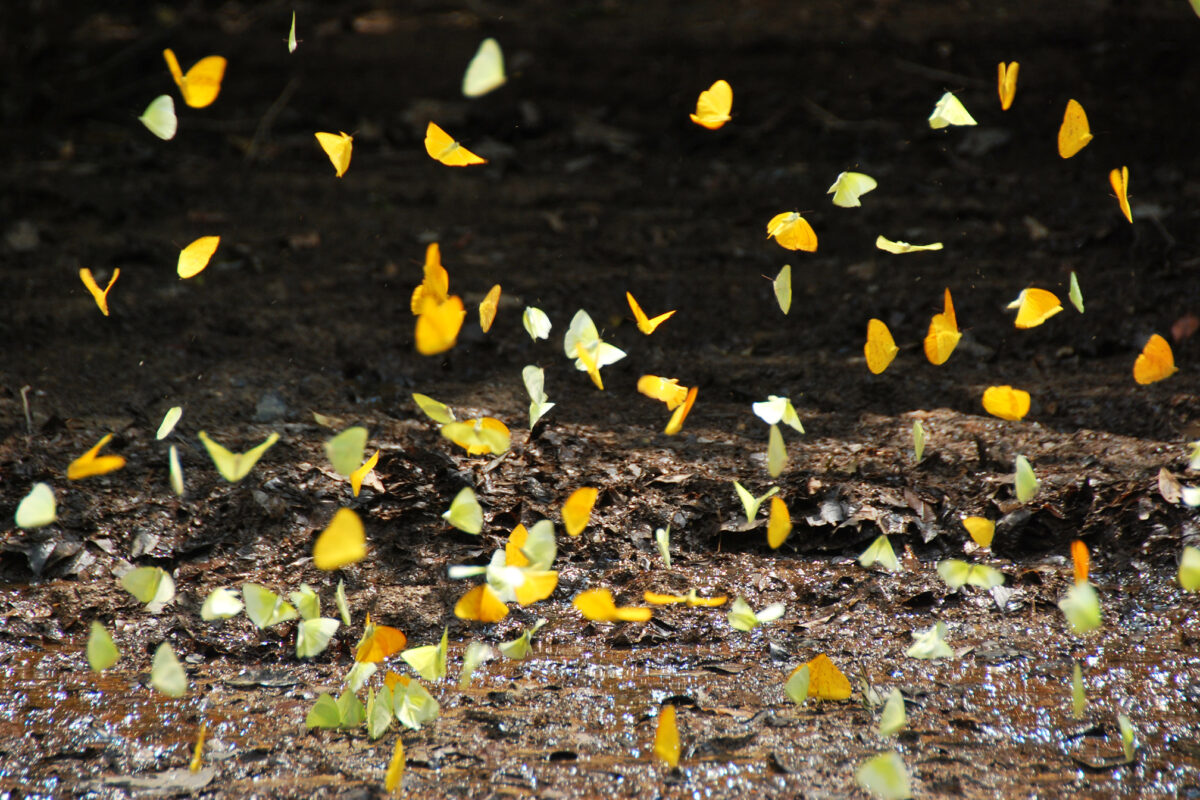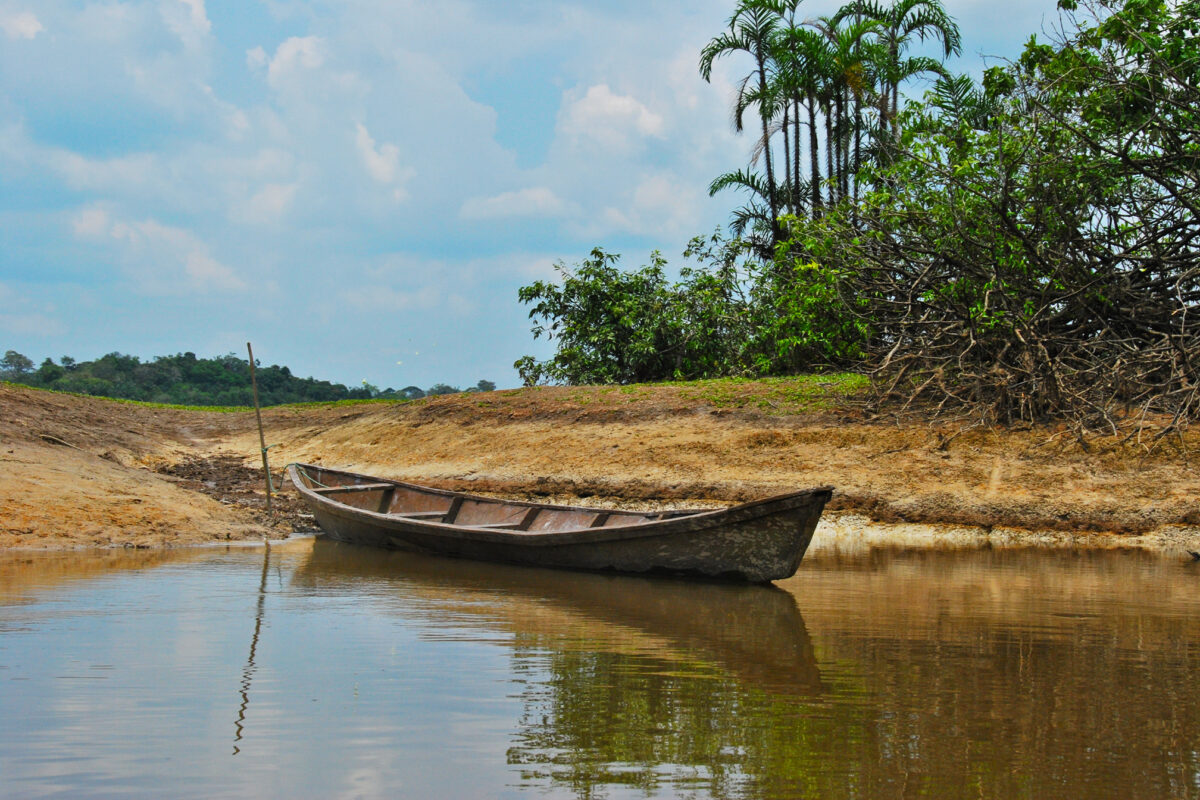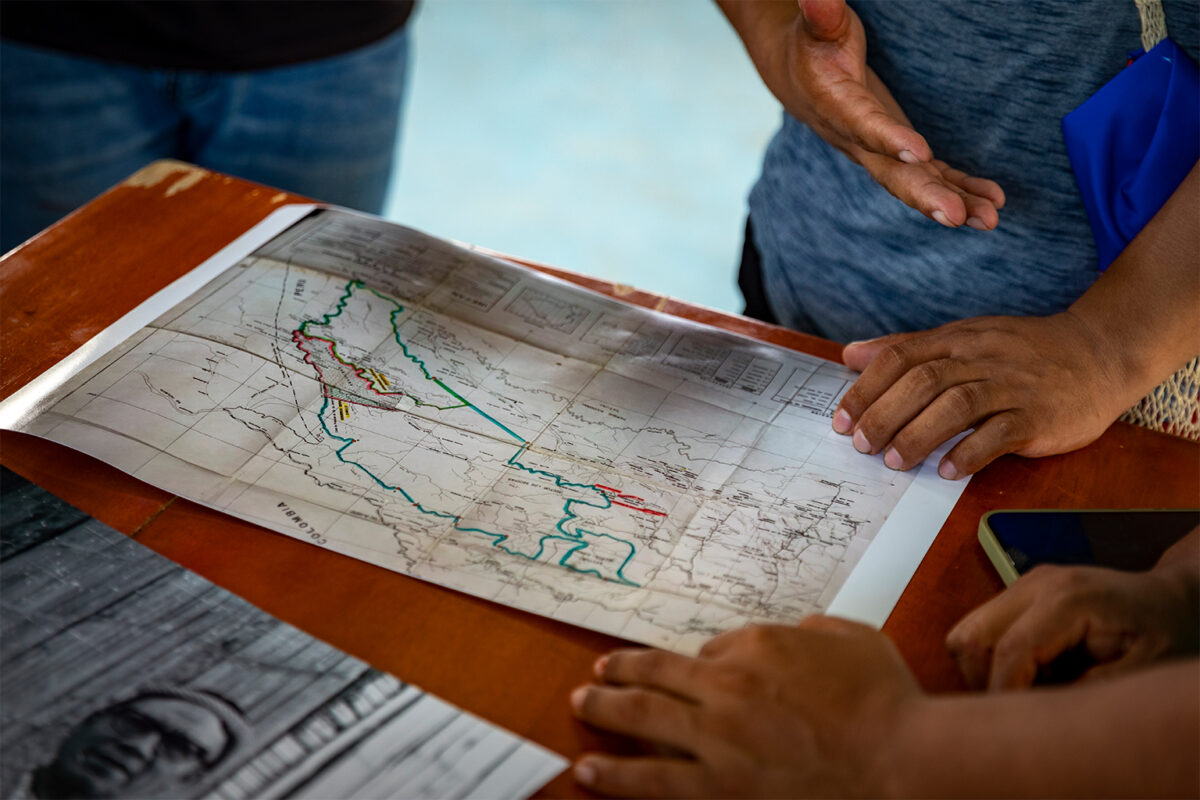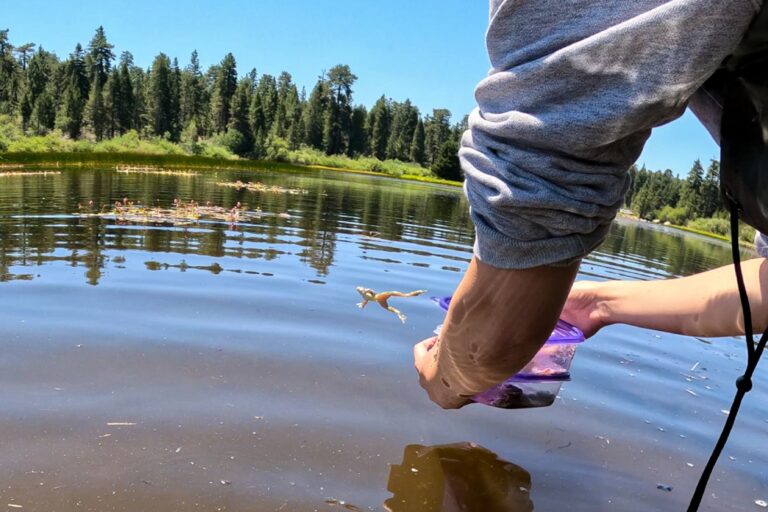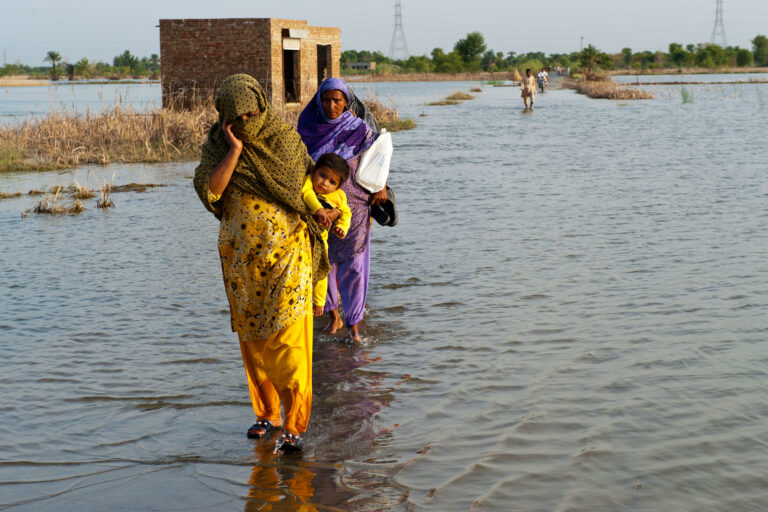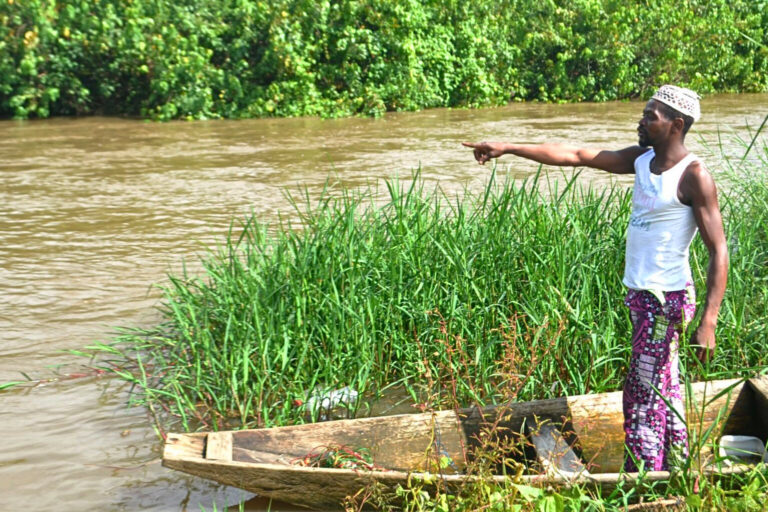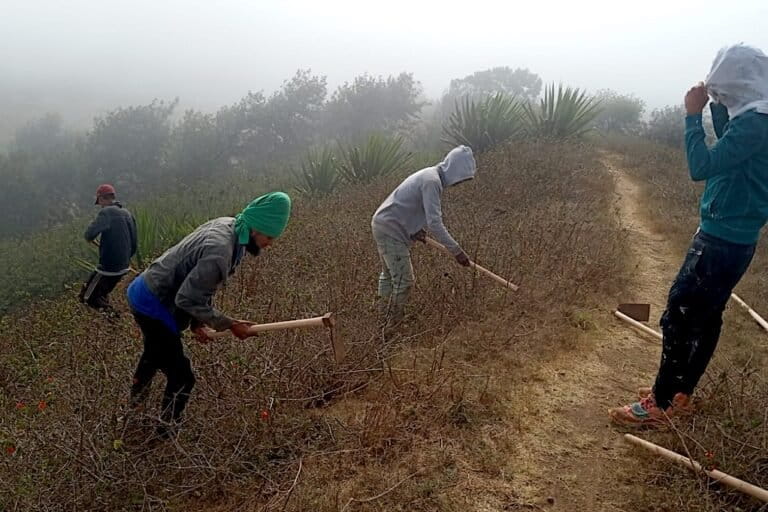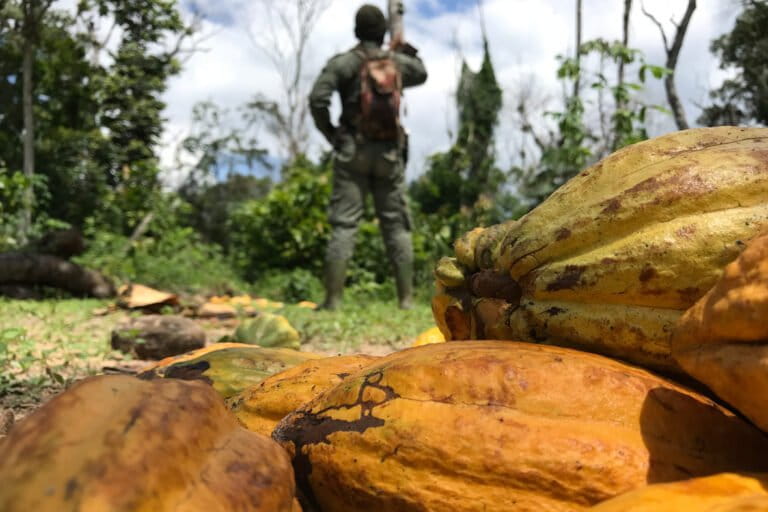- Michael J. Watts is a professor emeritus of geography at the University of California, Berkeley, and an expert on the Bayelsa State Oil and Environmental Commission (BSOEC).
- The BSOEC released a report in May calling for an international fund of $12 billion to be created to clean up the damage done to Nigeria’s Bayelsa state by oil companies like Shell and Eni.
- “We’re at a tipping point that really needs massive international and national resources and attention,” Watts told Mongabay.
In May, a commission of experts appointed by the governor of Nigeria’s Bayelsa state released its long-awaited report on the impact of oil production on the small riverine state. The report detailed years of oil spills, gas flaring, and other pollution from facilities owned by companies like Shell and Eni, with devastating impacts on biodiversity and human health. According to the commission’s findings, Bayelsa has cumulatively seen an Exxon Valdez-size spill every year for the past 50 years, and in some areas researchers found up to six times the safe amount of lead and cadmium in human tissue samples.
Since the report was released, both Shell and Eni have dismissed the commission’s calls for them to take financial responsibility for the ecological and health legacy of the oil industry in Bayelsa. The two companies blamed saboteurs for oil spills in the Niger Delta, portraying themselves as victims of a chaotic security situation doing their best to clean up pollution they hadn’t caused. With the prospect of oil majors acknowledging their role in the Delta’s woes looking dim, advocates in Europe are hoping the courts will deliver what they won’t on their own. While the U.K.’s Supreme Court recently ruled in favor of Shell in a case over a 2011 offshore spill, another one, brought by 13,000 plaintiffs from the Delta, is still progressing.
The Bayelsa commission told Mongabay that it hopes its report will boost efforts to hold Shell and others accountable for what they’re leaving behind in the Niger Delta.
To better understand the commission’s findings and what it says Bayelsa needs now, Mongabay spoke with one of its members, Michael J. Watts, a professor emeritus of geography at the University of California, Berkeley. Watts first traveled to Nigeria in 1972 and has spent much of the past 25 years researching the oil industry’s footprint in the Niger Delta, where Bayelsa state is located.
The following interview has been edited for length and clarity. For more of our coverage of the oil industry’s legacy in Bayelsa and the commission’s work, click here.
Mongabay: There have been a lot of NGO and other academic reports on damage done to the Niger Delta by the oil and gas industry. But yours is directly linked to a state government — what do you feel like the significance of that is?
Michael J. Watts: Despite all of those reports, and despite the international and national visibility of the problems in the Niger Delta, very little has been done. And in many respects conditions have seriously deteriorated. So the report argues that we’re at a tipping point. This report includes information that we really didn’t have before on toxicity, on pollution levels, public health, infant mortality, etc., to show the nature of these accumulated crises over the last half century that these earlier reports also documented.
It’s important then that the Bayelsa state government commissioned this, because it’s a signal, it seems to me, to Nigeria and the federal government, but also to the world at large, of the seriousness of what our report refers to as an ecocide. We’re at a tipping point that really needs massive international and national resources and attention, along with a sort of Marshall Plan for the Niger Delta.
Mongabay: What does the scale of the environmental impacts that you’ve seen in Bayelsa look like firsthand?
Michael J. Watts: Bayelsa is a small state. It’s half the size of Wales, its population is quite small, roughly two and a half million. It’s not the largest producer of oil [in Nigeria], but it nonetheless produces around 300 barrels of oil per day. We used some data from the Nigerian government agency that records oil spills, and there were 3,500 of them in Bayelsa alone between 2006 and 2019.
The scale of the spillage is mind-boggling: the equivalent of an Exxon Valdez spill every year! That means in practice in Bayelsa state, there were about 234 of these oil spills per year. So the density of these spills, and their consequences in an ecologically diverse and fragile region, is absolutely striking and frankly terrifying.
Another aspect which gets perhaps less attention is gas flaring. In the course of producing and pumping oil from wells, gas is released. Some of that gas can be captured and used for commercial and domestic purposes. But much of this “associated gas” is flared, which is to say it’s burned. That has a huge impact on carbon emissions, but it also produces particulate matter which includes various quantities of nitrogen, sulfur and heavy metals. These are major public health hazards.
There are also questions of dredging and clearing areas where oil plants are located, and effluent chemicals used in the process of drilling, for example, which can also be spilled and released with devastating ecological consequences.
And last, but by no means least, there are artisanal refineries. The Niger Delta is distinctive in part because of the existence of illegal, small-scale refineries in which oil is refined with very basic types of technologies. The military and the regulatory agencies want to limit and in fact destroy these artisanal refineries, which they typically burn, producing vast quantities of soot and enormous damage to local ecosystems, especially mangroves and freshwater swamp forests.
So, it’s the combination of all of those things that makes the ecological footprint of the industry so devastating. The first oil exports occurred in 1958, so we have 70 years of these sorts of accumulated and deepening problems as the scale and impact of the oil and gas industry in the country has expanded.

Mongabay: What does all this mean for people who live there, Bayelsans themselves? What are they experiencing as a consequence of the oil and gas industry’s presence in the state?
Michael J. Watts: I mentioned the population of Bayelsa is about 2.3 million, so quite small. But the oil infrastructure is really quite substantial. There are probably about 2,600 wells and roughly 230 different types of oil facilities, flow stations, and so on and so forth. And there are, of course, pipelines — about 5,000 kilometers’ worth [about 3,100 miles]. Much of this infrastructure, especially the oil pipelines, is antiquated and unsafe, often over 30 years old and in need of replacement. So about 500,000 of those 2.3 million people live within walking distance of oil infrastructure. Many communities are located very close to gas flares, which operate 24/7, and some of them have children who have never seen full darkness because of the light emitted from these flares.
Gas flaring creates particulate matter, pollution of groundwater, and heavy metals in the environment. In some locations, highly toxic oil-related contaminants such as chromium are present in groundwater at over 1,000 times the [World Health Organization] limit, while in others, concentrations of noxious chemicals such as ‘Total Petroleum Hydrocarbons’ exceed safe levels by a factor of one million, according to some of the samples taken.
All of these things show up in various types of public health crises like extremely high infant mortality rates — 10 times higher than what we have in the U.K. or the U.S. In addition, it shows up in various types of respiratory problems, which our public health data shows very clearly. And of course, there are various forms of cancer associated with these sorts of problems. Some of the most powerful data in the report shows the degree to which highly toxic heavy metals like lead are present in human tissues at levels that vastly exceed the international standard safety levels. In the same way, if you look at what are called polyaromatic hydrocarbons — matter that is derivative of the oil and gas industry — in groundwater in the communities in which these studies were conducted, it can be in some cases 100,000 times or more higher than the standard international safety levels.
Mongabay: An important dynamic here is that the oil majors like Shell and Eni are in the process of divesting from the Niger Delta and moving their operations offshore. Why is it so important to get them to pay for cleanup now?
Michael J. Watts: The number of divestments, for example selling of leases, have increased quite substantially among the oil majors. Many of the details of these sales and where liability lies actually has not been transparent. But it’s quite clear from what we do know that the oil companies are trying to offload those liabilities and the possible litigation and costs associated with ecological recovery, along with compensation to communities for past ecological harms. In the report we attempt to put a quantitative figure to that recovery, which is $12 billion. It’s a type of reparations issue that’s about where liability resides, and it’s a question of social justice to make sure that the oil companies are held accountable for the harms they have perpetrated.
We have 10 major recommendations that have to do with improving regulatory capacity, introducing new legal frameworks, enhancing the role of state governments, strengthening scrutiny on oil company practices, transforming their relations with oil host communities, public health investments, and not least a just and effective decommissioning regime. All these sorts of things are necessary to address the complex and multifaceted crisis in the Delta. But this divestment issue looms central because we anticipate that there will be an increasing number of [them] by the oil majors moving forward as we enter into this post-carbon world.
Mongabay: $12 billion is a big figure. Is it possible to clean up a place like Bayelsa?
Michael J. Watts: The costs involved in this are multiyear. The United Nations Environment Programme, which conducted a study in Ogoniland trying to calculate these types of calls, which we make use of in our report, pointed out that typically for a major spill this requires a three-decade-long period of rehabilitation and remediation, ecologically speaking. A full recovery will be costly, multidecadal in length, and in financial terms will involve major outlays. I think it’s important to acknowledge that. If you take a look at that $12 billion figure over the 12 years that we’re talking about, that’s probably in some respects a quite conservative number, actually. It’s a minimum investment that we feel will be required for ecological recovery and for some of the investments in human and social infrastructure, [such as] public health in parallel with ecological remediation.
Mongabay: You’ve mentioned things are getting worse. There have been efforts to hold Shell and the others accountable for a long time. What do you hope that this report is going to add to accountability efforts?
Michael J. Watts: The report emphasizes that it can’t just be business as usual, where a report is issued,k it enters the news cycle, there’s hand-waving in policy circles and nothing changes. That’s why I use this language of a tipping point. We have in the report a call to action for things that we think need to happen quickly and immediately. There has to be an international acknowledgement of the gravity of the problem. It’s going to require major mobilization of resources, it’s going to involve new and expanded forms of international cooperation, different types of commitments by the Nigerian government, and increased forms of popular mobilization by international and national nonprofits, with advocacy and so on. It’s going to require all of those things operating on an expanded and collaborative scale.
I think while that may seem in some sense enormously challenging, and it is, we tried in the report not to run away from the gravity of these nested political problems that keep this system in place. You may remember that Ken Saro-Wiwa, who was hung by the military in 1995 and who in a sense triggered popular mobilization around these issues in Nigeria and globally, referred to the slick alliance between international oil companies and the political classes who benefit directly and indirectly from oil. There’s a direct complicity between these two powerful constituencies. In some respects, that’s at the heart of the problem that we’re trying to confront here, and it’s a major set of political challenges that need to be addressed.
So we’re trying in this report to acknowledge how difficult these structural drivers of the crisis in the delta are: lack of international scrutiny, a flawed legal framework, lack of state regulatory capacity, this slick alliance that I talked about, the exclusion of local communities and civil society groups. All of these things operate in complicated networks reinforcing one other, and we’re trying to highlight them, pry them apart, and in our call for action try to lay out a series of ways they need to be addressed through international cooperation on an expanded scale.
It’s an ambitious program. But I think we’re very clear-eyed about the scale of what is required in order to address those challenges.
For weary Niger Delta residents, shocking oil pollution report offers little hope
Banner image: A boy with a fishing net stands on the oil-soaked bank of a creek area in the Niger Delta. Image by Milieudefensie via Flickr (CC BY-NC-SA 2.0).



